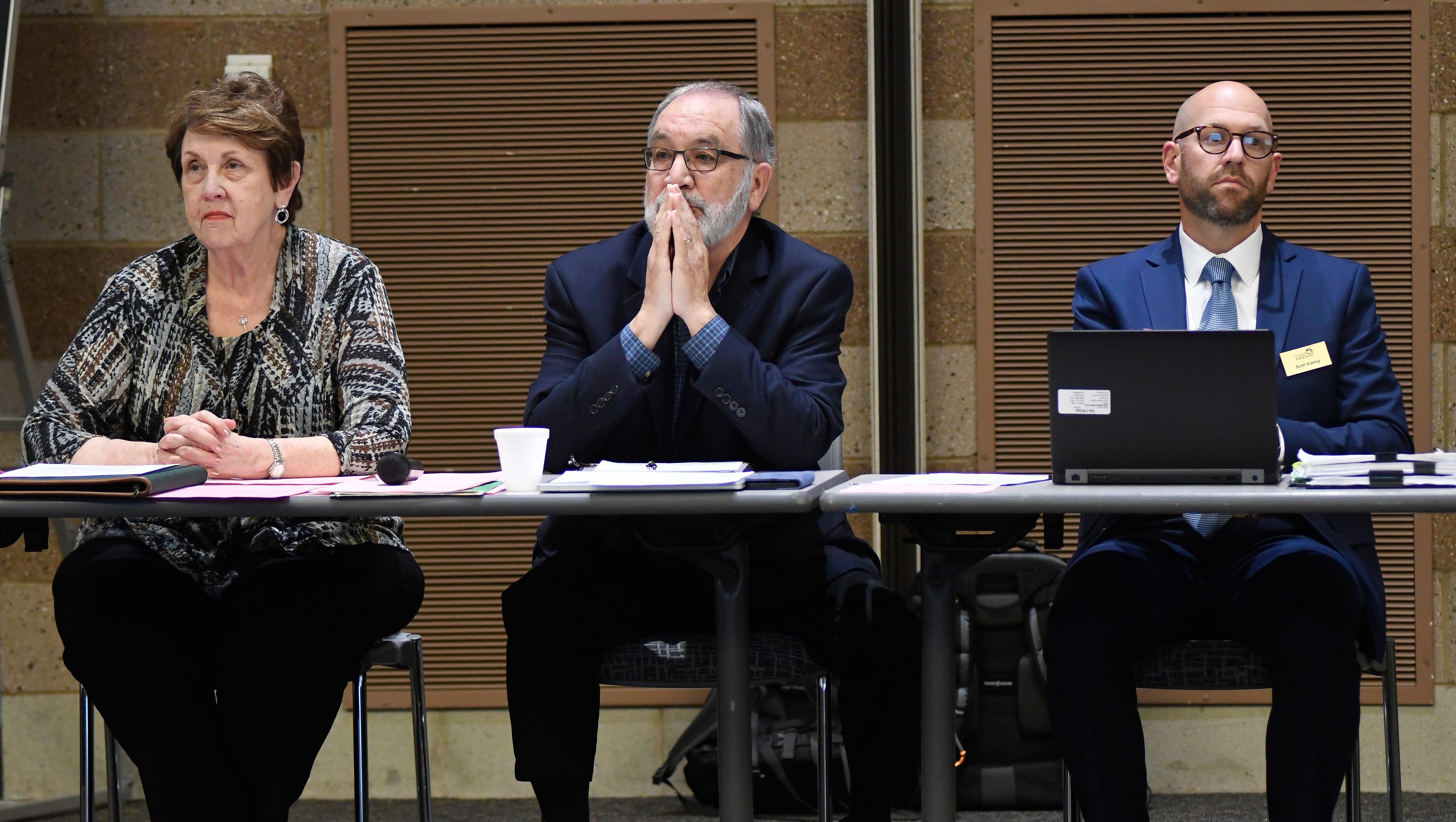Proposed Michigan social studies standards include more examples of diversity
 Jennifer Chambers
Jennifer Chambers
Proposed revised social studies standards for Michigan's K-12 students include more examples and references to the roles women, minority organizations, Muslims and African-Americans played in history, according to state education officials.
On Tuesday, education officials announced that a draft of revised standards would be presented to the State Board of Education on April 9 after the Michigan Department of Education held 18 public sessions on the issue and recorded 5,000 responses and multiple work groups met to consider revisions.
The 146 pages of proposed revised standards can be found on the state's website. An additional link compares the current 2007 standards to the proposed 2019 revised standards while another link compares a set of 2018 proposed standards revisions to the 2019 version.
Proposed revisions to the standards offered in 2018 by then-Republican state Sen. Patrick Colbeck include removing references to climate change, gays and lesbians and the term "core Democratic values." The latest standards use the phrase "Democratic values" in the proposed teachings.
Colbeck said he advocated for the removal of the word “democratic” not because it sounds similar to "Democrat" but because students in school learn that the American system of government is a “republic.” He was one of 21 members of a focus group that proposed changes to the standards, which were last revised in 2007.
Linda Forward, a senior executive policy adviser at MDE, said concerns from the public about examples being deleted and words changed in a 2018 proposed version were addressed.
"The lack of inclusion of women, the NAACP and role of Muslims and African-Americans ... you will find many of those have been modified to change those concerns," Forward said.
State standards set expectations for what students are to learn by the end of each grade. State assessments are based on those standards.
Mike Libbee of the Michigan Geographic Alliance and a standard writer said workgroups created to discuss revisions helped the team address political bias and diversity.
"In many cases, they helped us," Libbee said.
The term "climate change" appears six times in the proposed 2019 standards and was removed twice in the 2018 proposed changes. It was only found twice in the current 2007 standards.
The words "gay and lesbian" were removed from the 2018 proposed standards and put back in the 2019 version. The term is already in the current version.
In a section on civic participation, the 2018 workgroup wrote "describe ways citizens can work together to promote the CORE values and CONSTITUTIONAL principles of American democracy, A CONSTITUTIONAL REPUBLIC."
The 2019 version is proposed as "describe ways in which people can work together to promote the values and principles of American Democracy."
Jim Cameron, a social studies consultant at MDE, said other changes include moving an era in world history from middle school to high school and making sure industrial history was taught in high school.
History standards were split into third and fourth grade to allow teachers more time to cover the standards before students are tested in fifth grade on the statewide assessment.
There are fewer standards in the proposed 2019 version but more examples per standard to help teachers reach a broad group of students, Forward said.
"If you look at the language in the standards, teachers are encouraged to add their own ideas that resonate with the population they teach," Forward said.
Education officials said once approved, it would take roughly five years for teachers to undergo professional development and for the standards to be written into the state assessment.
That means students would not be taught on the new standards until the 2023-24 school year.
“We have to be able to teach it, and teach it well before it is a viable option for an assessment. It takes teachers a while to unpack it," Forward said.
Social studies teacher Alyce Howarth said she is going to a training session on April 12 at Oakland Schools to learn about the proposed revisions.
Howarth said she was concerned about past attempts to remove the word "genocide" from a section on the Holocaust. The word "genocide" appears ten times in the new standards but a suggestion from 2018 to remove the word in reference to Hitler's Final Solution policy was approved in the 2019 version.
"There is this mandatory two to four hours of Holocaust teaching that we have to do," Howarth said. "Honestly teachers are going to bring this up...I didn't just rely on the textbook. There are other sources for teachers to use."
Howarth, who is in her 26th year of teaching in Southfield's public schools, said she was encouraged to hear that more references to minority, religious and other groups were being added.
"The standards are there as framework," she said.
A task force of students, teachers, administrators, parents and community members met multiple times to incorporate suggestions received during the period of public comment, state education officials said.
Workgroups of several cultural/ethnic communities reviewed the draft standards, MDE officials said.
More public sessions on the standards will be held in April and May, state officials said, and the state board will receive a final draft on revisions at its June 11 meeting.
jchambers@detroitnews.com